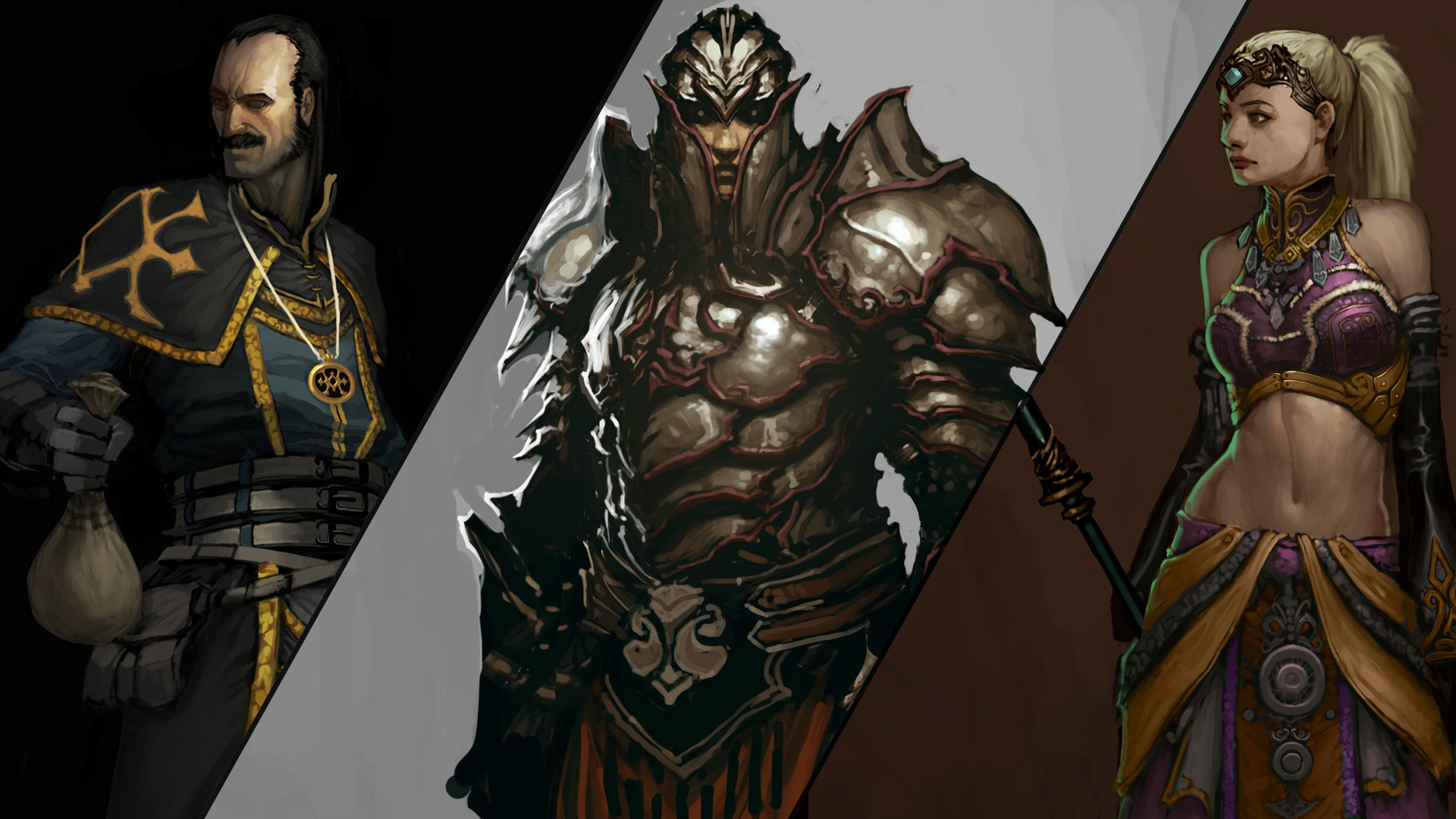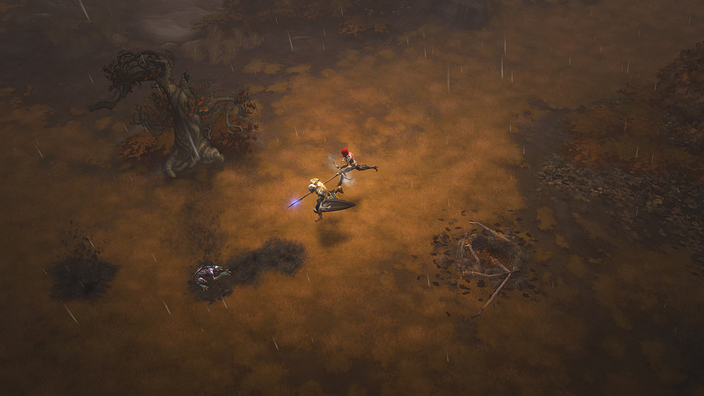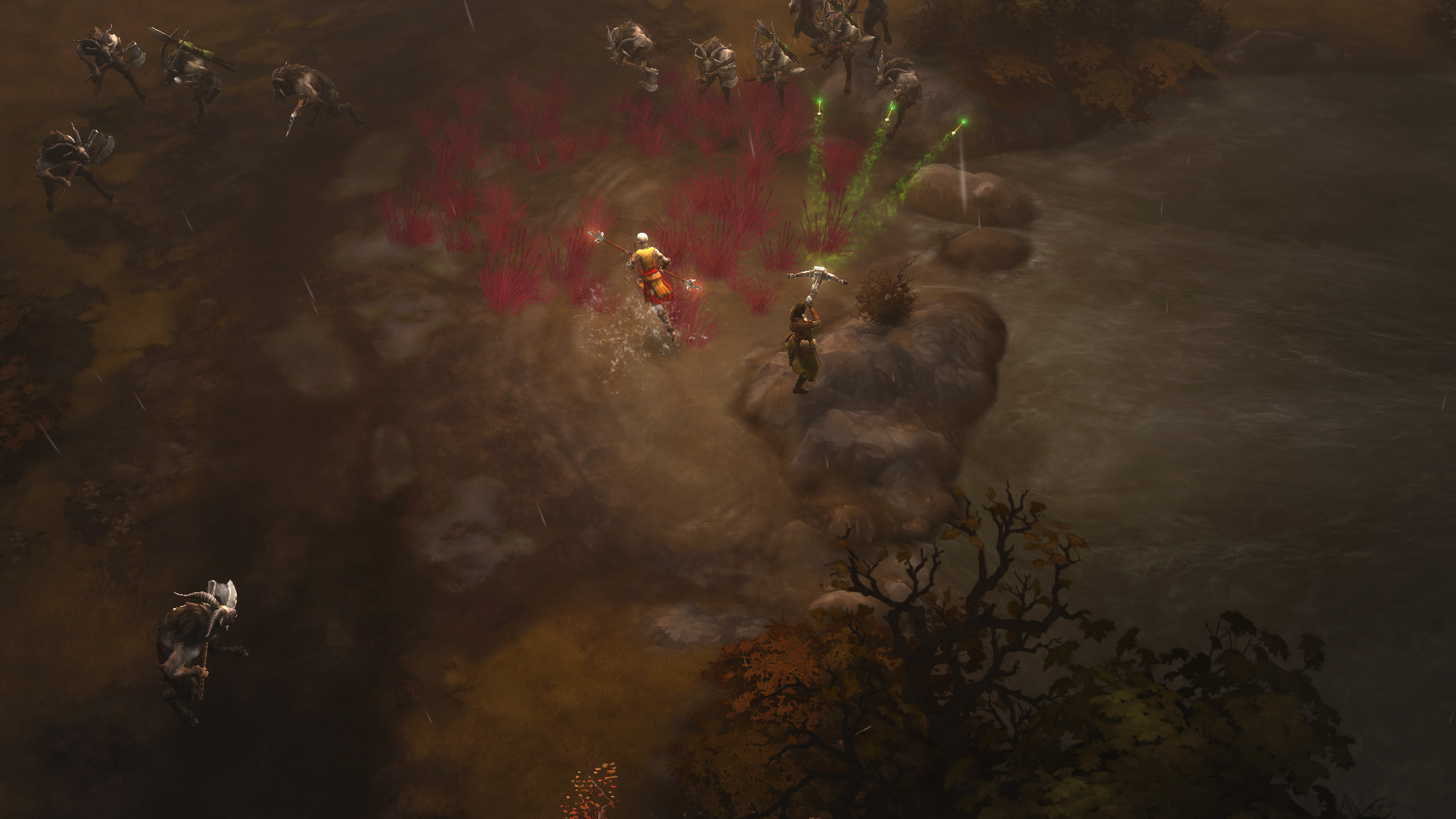Why I Love: Diablo 3's followers
When you don't have a friend to help you kill demons, Diablo 3's followers do more than just fight with you.

My friends and I lost a lot of time to Diablo 2 when it first came out, trapped in a frenzy of clicking every weekend. But in the 12 years between that and Diablo 3 I moved and made new friends who were less interested in clicking and more likely to be put off by Diablo 3's flaws, of which I'm the first to admit there are plenty. I went back to Tristram alone.
Yes, I know: sad trombone. I tried playing with strangers but it wasn't the same and in the end I switched to private mode and relied on NPC followers instead. To my surprise they weren't the boring meat shields you hired in Diablo 2, but actual characters with personalities. It's not obvious at first—the Templar, Scoundrel, and Enchantress slot neatly into your bog-standard Fighter, Rogue, Wizard archetypes—but it became clearer the more time I spent with them.

Kormac the Templar, for instance, is first encountered halfway through the Cathedral level, where you rescue him from a band of cultists. It's the same setup everybody running Dungeons & Dragons uses when they need to introduce a new player when the party's halfway through an adventure. Rescue this guy whose objectives neatly align with yours, then back on with the show. He's a devoted holy warrior from the order of yadda yadda whatever, let's kill some monsters and take their stuff.
When you're done dropping giant bells on skeletons, throwing exploding frogs at imps, or whatever it is you do, Kormac tells you he's suffering from amnesia. We're still in stereotype-land here—fantasy heroes develop amnesia like you or I catch colds—but Kormac's knightly order told him his forgotten past is full of sin he needs to seek redemption for, though he doesn't seem the type. With a little prodding he'll start digging into his dark past to find out why he was robbed of his memories.
And then he makes you promise that if he falls back into sinful ways, you'll be the one to kill him.
It's a character moment with unexpected impact. This is the same game where a blacksmith begs you to help euthanize his wife because she's transforming into an undead monster, and as soon as that's finished hands you a sidequest to find his missing apprentice as if you've just done nothing more significant than clear his basement of rats. Emotional heft is not Diablo 3's specialty.

The other followers initially seem shallow as well. Lyndon the Scoundrel is Han Solo but even less of a gentleman; Eirana the Enchantress is a bookish shut-in who happens to be handy with magic missiles. But get to know them and you learn that Lyndon sends the money he steals to the family of his jailed brother because he feels guilty over both the arrest and his secret love for his brother's wife. Meanwhile it turns out Eirana's naivete stems from the fact she grew up in another era and was put into magical hibernation, then revived in an age where everyone she knows is dead. They all have regrets and things they've lost.
Keep up to date with the most important stories and the best deals, as picked by the PC Gamer team.
It's the same effective formula BioWare used. Characters seem like bundles of tropes you're immediately comfortable with, but inevitably reveal a tragic backstory as you work your way through their dialogue looking for sidequests. Lyndon calls you out for exactly this when you ask him to tell you about his brother: "And then what? I suppose you'll make it all right? You'll fix it up just like another one of your little errands? Some things aren’t that easy."
To hear all of the followers' dialogue you need to check back regularly during each act, take them each into battle, and do absurd things like bring them with you when you replay the quests you found them in so they can meet themselves—Eirana's reaction to discovering one of her "sisters" is priceless. The amount of effort put into something few players will notice is absurd, but wonderful to stumble across. Players who are just in Diablo 3 for the click-frenzy and never listen to the NPCs—a totally valid technique for slogging through the bland main plot—will never notice this stuff. That makes finding it seem even more special, a loot drop as rare as any legendary sword.

Jody's first computer was a Commodore 64, so he remembers having to use a code wheel to play Pool of Radiance. A former music journalist who interviewed everyone from Giorgio Moroder to Trent Reznor, Jody also co-hosted Australia's first radio show about videogames, Zed Games. He's written for Rock Paper Shotgun, The Big Issue, GamesRadar, Zam, Glixel, Five Out of Ten Magazine, and Playboy.com, whose cheques with the bunny logo made for fun conversations at the bank. Jody's first article for PC Gamer was about the audio of Alien Isolation, published in 2015, and since then he's written about why Silent Hill belongs on PC, why Recettear: An Item Shop's Tale is the best fantasy shopkeeper tycoon game, and how weird Lost Ark can get. Jody edited PC Gamer Indie from 2017 to 2018, and he eventually lived up to his promise to play every Warhammer videogame.

